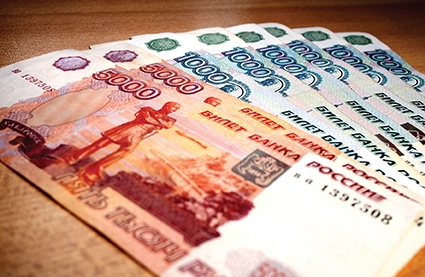Economic Development Will Save Russia
Op-Ed
Over the past decade or so, Russia and the West have been engaged in an economic and semi-military confrontation with each other across the former Soviet space. Differences between the two sides are becoming so wide that it is increasingly unlikely that the sides will reach a compromise in the near future. In fact, a compromise will only be possible if either Russia or the West backs off from already chosen foreign policy plans. Indeed, geopolitical trends show that for the next several years or even more, Russia’s economic development (although well out of recession) will be slow, while the EU’s march into eastern Europe and the former Soviet space will only intensify. Moreover, the US will increase its military capabilities in the Russian borderlands, particularly in Ukraine and Georgia.
Taking the overall picture of the Eurasian landmass over the past 25 years, it is clear that the Russian power has been receding. Although it is fashionable to say that Russia is resurgent and that Moscow’s actions in Ukraine, Georgia and Moldova are good examples of that, in fact, Russia’s influence in those countries has only diminished. In the early 2000s, where civilians in these countries were either neutral or pro-Russian, now they are unequivocally pro-Western.
Therefore, from a strategic point of view, politicians in the Kremlin should be worried that Russia’s sphere of influence is diminishing, and that major steps should be taken to rectify this for them. This leads to the following question: since geopolitical differences between Russia and the West are wide and Russia is likely to lose more, can Moscow take a different path? Could the Kremlin, at least theoretically, give up on its interests in the former Soviet space before it is forced to do so?
World history teaches us that countries actually do this rarely. Germany gave up on its military aspirations only after two devastating world wars, as did Japan in Asia-Pacific. There were less traumatic instances, too. Great Britain, for instance, relegated its primary position to the rising US’ military power following WWII. Considering that, what should the future Russia be like in the XXI century, a century of technologies and supply chains, where the West and Asia-Pacific are increasingly predominant? Is it worth pursuing the current geopolitical agenda in the former Soviet space, while lagging behind economically?
Perhaps, it is worth Russia abandoning its geopolitical interests across Eurasia and instead focusing more on internal development. Germany and Japan did the same following their defeats in WWII and, by refocusing their military potential into the industrial sphere, became arguably the most successful economic stories. Russia can become a similar story. The country’s hinterland is almost devoid of major infrastructure and rich resources could only boost the development.
Surely, international relations have never been free of geopolitics of some sort. Even in Germany and Japan, after decades of inward-looking foreign policies, politicians are becoming more vocal on how to protect their countries’ vital interests abroad, to secure supply chains and prevent other actors from gaining the upper hand. That is a paradigm, but Russia, it seems, needs something that will free her from overthinking on Ukraine, Georgia, Central Asia, etc. No doubt, these regions are important for Moscow, giving attention and spending economic resources on them are not worth the hassle, while inside the country Russia is quite fragile and uncompetitive in comparison with the European states/US.
Russia could, in fact, benefit from European technology, which would eventually transform the country into a powerhouse capable of attracting the neighboring countries. Thereby, a veritable expanse in the north of Eurasia would be created, connecting the Atlantic Ocean with Vladivostok, at the Pacific.
However, this is only one of the possible scenarios. Another would be Russia continuing the current course where it is neither attractive ideologically (as it was in the early stages of the Soviet Union), nor powerful enough economically to expand its Eurasian Economic Union (at least for the moment).
While the scenarios laid out here are highly hypothetical, one fact remains absolute: Russia is experiencing deep pressure from the West, and Moscow’s foreign policy moves have been so unsuccessful that the Kremlin lost influence in several important territories across the Eurasian landmass. Something needs to be done to reverse the process. Leaving all the neighboring countries to freely choose foreign policy and instead concentrating on internal development will be one option which will make Russia more attractive politically and economically in the long run.
Emil Avdaliani











